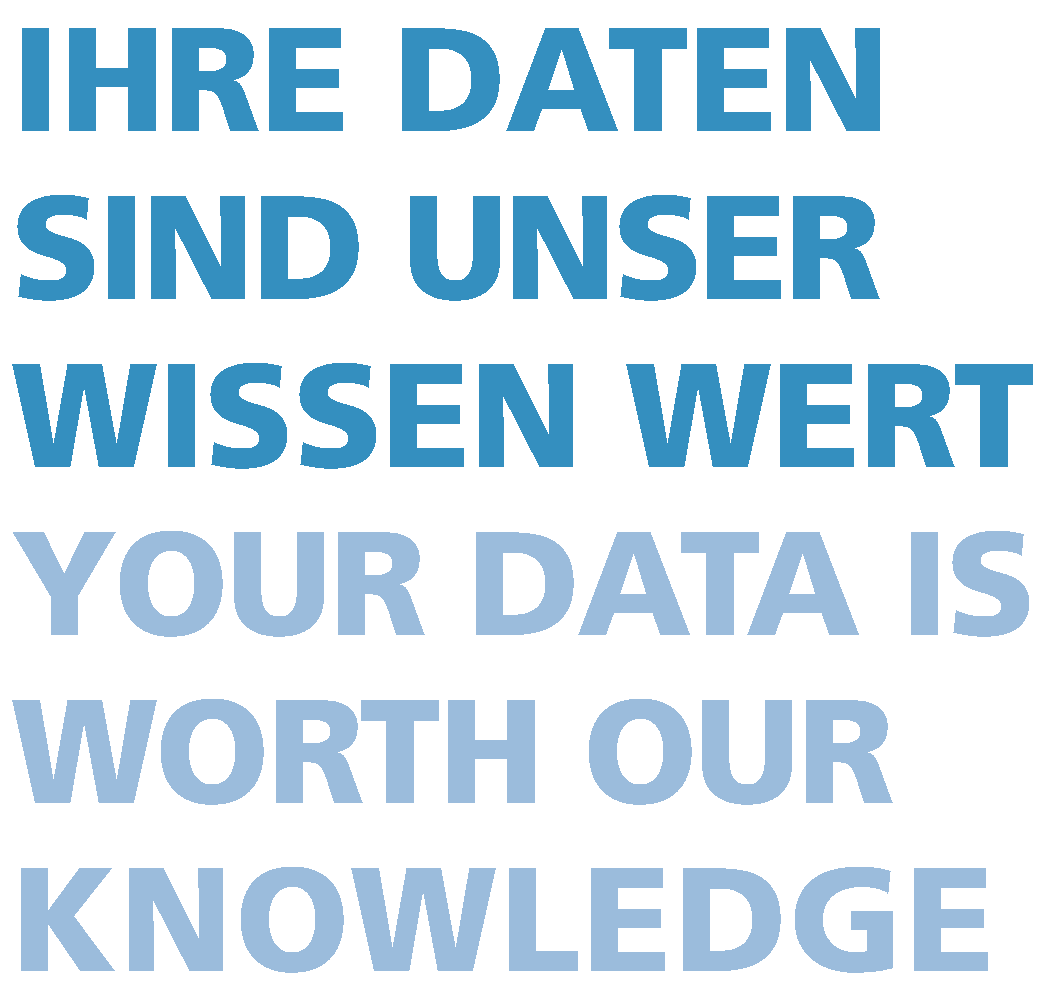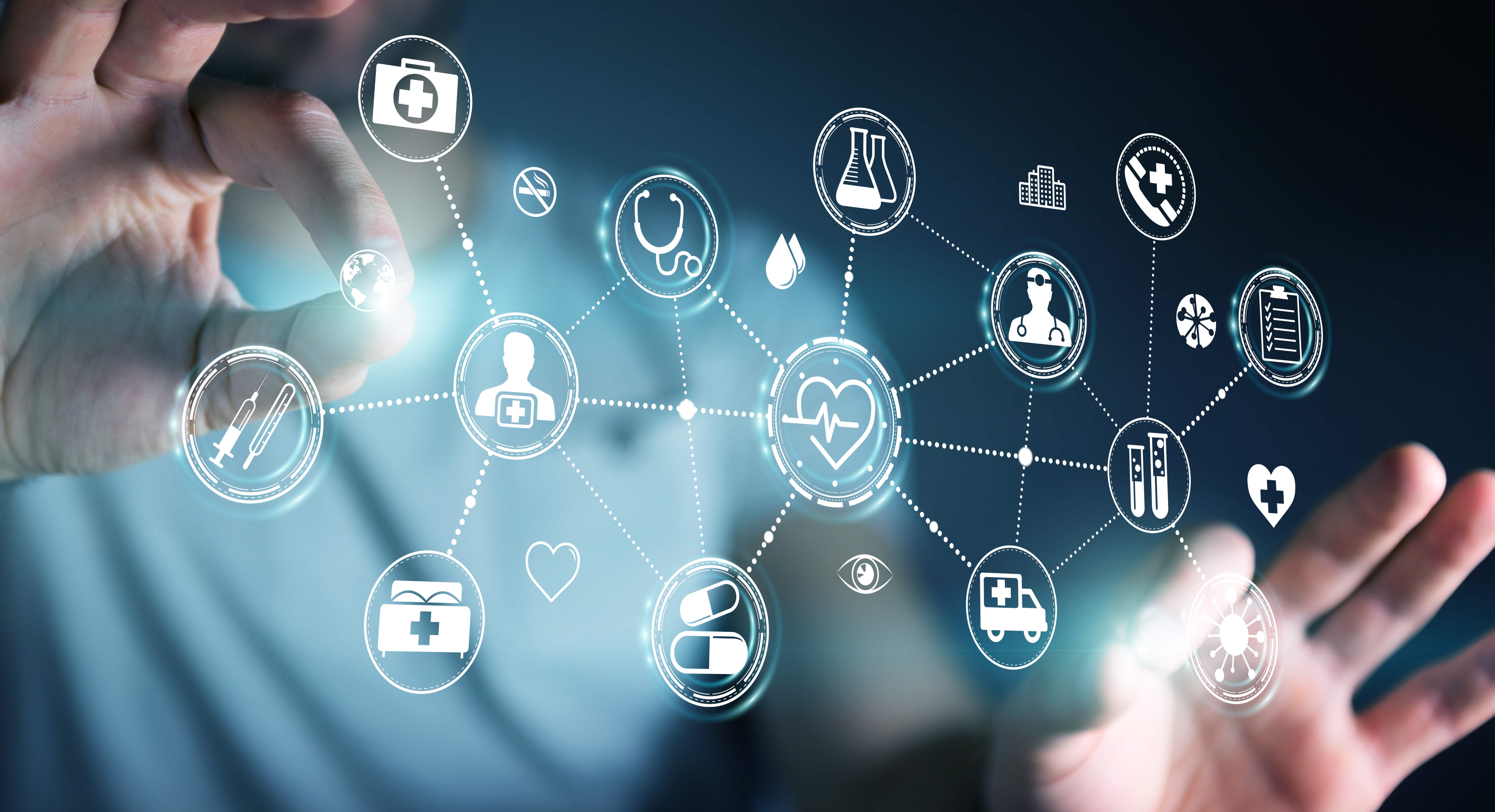Digitization is changing all areas of life and work – new technologies are emerging and digital skills are changing traditional job profiles. Above all, the systematic collection, analysis, processing and monetization of data holds the potential for optimized processes, additional services, new business models and recurring value creation. In recent years, researchers at Fraunhofer IMW have investigated the potential of data-based value creation, especially for medium-sized companies in Saxony. They also supported several digitization projects in the healthcare industry and, among other things, focused their analyses on the responsible handling of personal, i. e. sensitive, data.
Valuable data – Digital value creation in the spotlight
Data mining and value creation at a glance

"Data Mining and Value Creation", the joint project of Fraunhofer IMW and Leipzig University, funded by the European Union and the Free State of Saxony, which started in April 2018, has now been successfully completed. The Leipzig researchers have investigated the potential of data-based value creation for companies, especially for Saxon SMEs, in around 200 use cases with companies, through studies and workshops, and have developed tools and solutions for data-based services and business models in pilot projects.
On April 27, 2022, the "Digital Value Creation Day" marked the closing of the project. Prof. Dr. Eva Inés Obergfell, Rector of Leipzig University, Sebastian Gemkow, Saxon State Minister for Science, Culture and Tourism, and Prof. Dr. Thorsten Posselt, Executive Director of Fraunhofer IMW, used their welcoming speeches to invite the participants to look back on four years of project work.
Ausblick 2030 – Daten und Wertschöpfung
Prof. Dr. Heiko Gebauer, Project Manager Data Mining and Value Creation and Prof. Dr. Gerik Scheuermann of Leipzig University used their presentation at the Digital Value Creation Day to provide an outlook on the topic of data and value creation. In doing so, they addressed the lessons learned from the project:
- Companies need to be able to identify their data. Information about and knowledge of the possible fields of application for existing data is essential
- There is a great demand for data analysis, but the competencies are lacking
- Scientific transfer must be demand-oriented! Industry defines the problems. This significantly increases the acceptance and speed of innovation
- Knowledge transfer into companies has to be a central part of project activities
Based on these lessons learned, the following recommendations were derived:
- Development of algorithms for data profiling of heterogeneous data to connect data to an organizational knowledge base
- Development of a data and analytics platform for shared tasks and shared data to provide data sharing and data integration capabilities for companies
- Formation of a think tank from different disciplines to holistically address requests from companies and also provide a comprehensive reflection on monetization opportunities and technical feasibility
- Creation of knowledge transfer tools to enable companies to create more resilient business models based on data
"DataLab WestSax" - Knowledge Transfer on Data-Based Value Creation for Saxon Companies
Small and medium-sized companies often lack tangible usage ideas or simple, transparent processes for analyzing their in-house data and adapting their value creation processes. The "DataLab WestSax" project offers medium-sized companies, primarily in western Saxony, a protected, cost-neutral space to experiment with data-based business models or new forms of value creation.
Within the framework of so-called real experiments, they can, for example, try out inter-company data exchange, the sale of data-based expertise or data-supported collaboration on digital platforms. The participating scientists will bundle the resulting knowledge in a think tank and systematically identify data usage demands in the course of the project as a reality check for further developments of data-based value creation in West Saxony. In addition to the real Experiments, the Digital Lab is a key pillar of the project.
[...]
Research unit develops solutions for the digital transformation of the healthcare industry

Health and digitization are megatrends of our time. Ideally, digitization enables patient-centered care, facilitates the work of employees in medical care facilities, and is often actively demanded by patients. For the digital transformation in the healthcare industry to succeed, questions about the interaction of different technical systems, comprehensibility, but also the processing of sensitive data and responsibility for the well-being of patients play a central role. The introduction of new technologies requires special care.
The researchers of the research unit "Digital Health"(formerly: Price and Service Management Unit) support companies, medical care providers and research institutions for example, by analyzing the user-friendliness and user acceptance of digital health applications. They provide support for the digital transformation and resilience of business models and processes. They also develop individual action plans for targeted digitization projects in the healthcare industry. Profitability analyses and health economic studies, as well as market access strategies based on market and competition analyses, round off the profile.
Virtual assistant enables data-sovereign patient consent
Personal health data can drive the development of new therapeutic methods or drugs or optimize healthcare processes. However, the processing of this data first requires the patient‘s consent. Patients currently need to provide between eight and ten signatures on average when they are admitted to hospital. It remains to be seen whether these consents enable patients to decide for themselves which data they want to make available and for what purpose.
An interdisciplinary team of media didacticians, ethicists, psychologists, economists and computer scientists got to the bottom of "informed consent" in the joint project ViCon - and is now further developing a virtual assistant for data release.
Data literacy through a virtual assistant
The researchers want to find out how comprehensible common information and consent methods are in everyday clinical practice. They also examined which consent options - ethically and legally defensible - actually inspire trust. They investigated the question of which approach strengthens patients‘ informedness and freedom of choice, but also favors the release of research-relevant data. Their findings were incorporated into the development and programming of a virtual, platform-independent assistant.
[...]




